
Suda has experienced their hardest times as a country for close to thirty years under the leadership of their dictatorial President Al-Bashir who has since been sent parking by the military.
That aside what has been of interest is the person behind the revolutions where one of his closest friends and Vice President has been involved.
There is also the involvement of a young lady, Alsaa Salah who was photographed atop a car addressing the multitudes that were demonstrating on the streets of Khartoum and is reported to be death threatened, But who is the man Awad Ibn Auf?
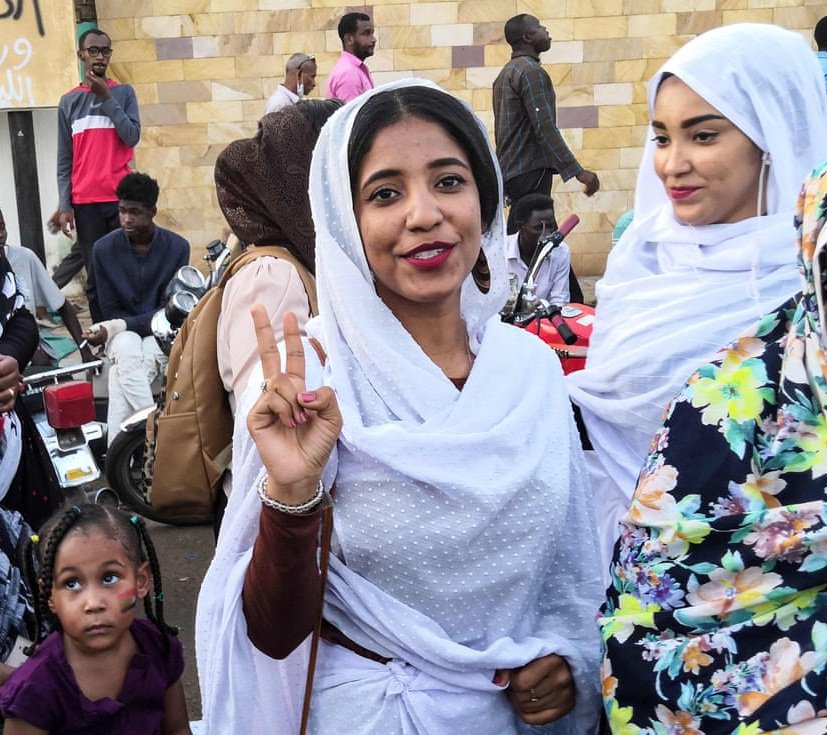
After 30 years with one president, Sudan has had two new heads of state in just two days.
On Thursday, following four months of the biggest street protests in a generation, the country’s defence minister and vice president, Awad Ibn Auf, took to state radio to announce the arrest of President Omar Hassan al-Bashir and his own supremacy over a two-year military-led transitional government.
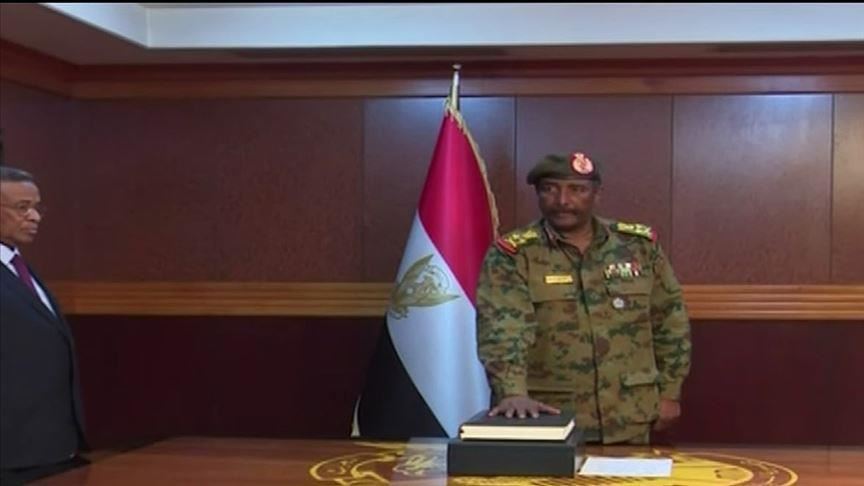
Just a day later, he stepped down, giving way to Gen. Abdel-Fattah Burhan, another high-ranking military officer, demonstrating the tumult underlying Bashir’s ouster.
Both Ibn Auf and Burhan were members of Bashir’s inner circle, though Ibn Auf was more directly associated with the military campaign in Sudan’s Darfur region that led to allegations of war crimes and genocide against Bashir.
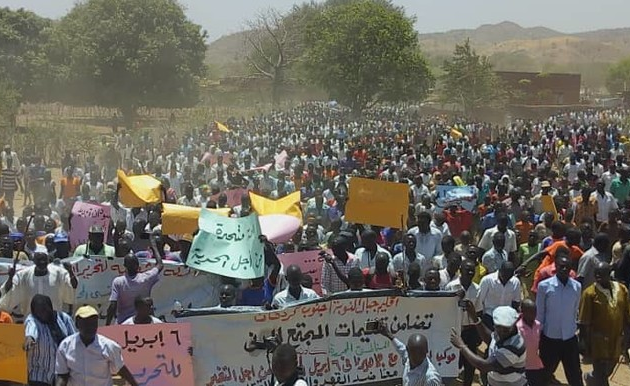
Burhan is also a career military man. Until recently, he served as the head of the military’s ground forces and was instrumental in sending Sudanese troops to Yemen’s civil war to fight on the side of the Saudi-backed government.
Ibn Auf was not a man of the people like Bashir once was, no matter how despised he became. The 65-year-old was a career military man in a country where the military is mostly known for repression and atrocities.
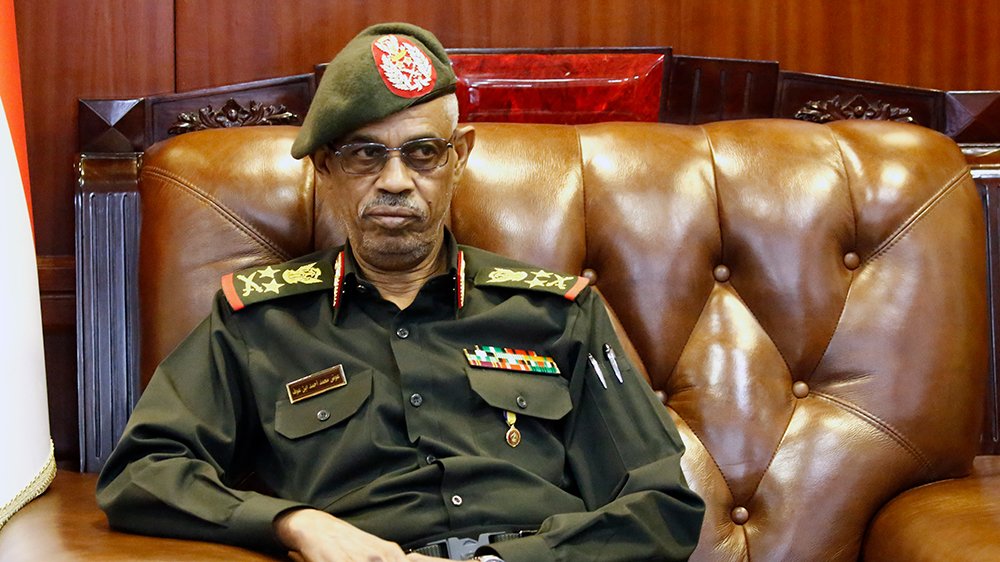
“I, the defence minister, chairman of the High-Security Committee, announce the uprooting of the regime and placing its head under custody in a safe location after arresting” Bashir, he said Thursday, without a quiver in his voice as he announced a two-year transitional military government.
His handover to Burhan was equally direct. “I am confident he will steer the ship to safe shores,” Ibn Auf said of Burhan, according to the Associated Press, adding that he was stepping aside to “preserve unity” of the armed forces.

Some protesters celebrated the handover, according to witnesses in the capital, Khartoum, but others vowed to continue their sit-in until a civilian-led government was put in place.
In a tweet, the U.S. assistant secretary of state for Africa, Tibor Nagy, urged authorities to respect the Sudanese people’s call for “an inclusive and representative civilian-led government now.”
On Friday, Ibn Auf announced Bashir would not be handed over to the International Criminal Court, where he is charged with committing war crimes, crimes against humanity and genocide in Sudan’s western region of Darfur more than a decade ago.

Instead, he said, Bashir might be tried within Sudan. Most analysts say the military establishment’s ties to the atrocities in Darfur mean a fair prosecution of Bashir in Sudan is improbable.
Ibn Auf rose to a high rank just as Bashir’s government was gearing up for its campaign against a raggedy band of rebels in Darfur, which borders Chad.
There, Ibn Auf, by then chief of military intelligence and security, liaised with the Janjaweed a collection of ethnic Arab militias that brutally raped, pillaged and killed their way through the region, burning much of it to the ground and forcing millions of people to flee.

In 2006, he was sanctioned by the U.S. government for his role in Darfur, and he remains on the sanctions list today. He is one of just a handful of world leaders on this list, which includes North Korea’s Kim Jong Un, Syria’s Bashar al-Assad and Venezuela’s Nicolás Maduro.
The ICC did not indict Ibn Auf. Pending further investigation, however, he still could be prosecuted by an international court.
“Because he could still face prosecution for war crimes, he would not have been taken off the [sanctions] list, so that he could not use assets or financial resources to aid in avoiding said prosecution,” said Neil Bhatiya, a sanctions expert at the Center for a New American Security.
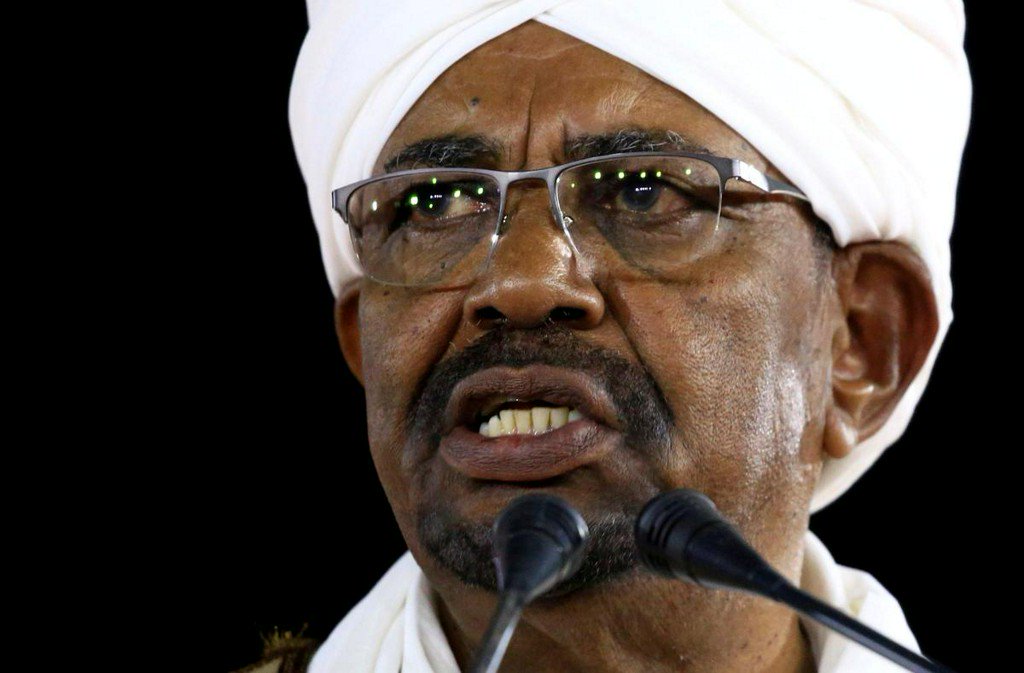
Bashir appointed Ibn Auf as vice president in February, as protests rocked Sudan.
As the protests morphed into a vast sit-in in Khartoum this week, Ibn Auf told a group of military chiefs that “Sudan’s armed forces understand the reasons for the demonstrations and are not against the demands and aspirations of the citizens, but will not allow the country to fall into chaos,” according to local media.
In his speech Thursday upon assuming power, Ibn Auf declared a curfew, which many protesters saw as an attempt to shut down the round-the-clock sit-in.

Thursday night, however, the military did not enforce the curfew. And on Friday morning, Ibn Auf’s political chief, Omar Zenalabdin, said in a televised address that the military council was “the protector of the demands of the people” and that the two-year transition could be shortened if matters are handled “without chaos.”
He added that the military council plans to hold a dialogue with protesters.
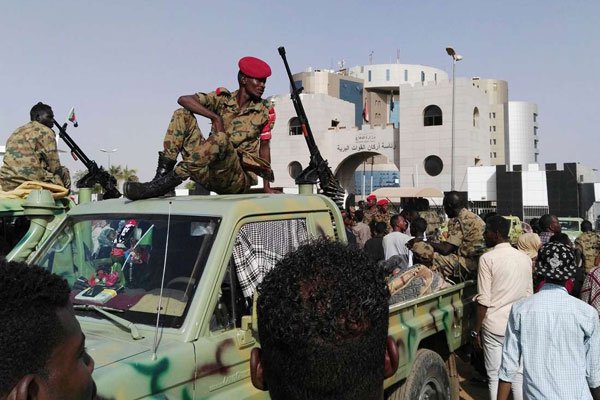
“They need to come to the middle, of course, otherwise these protests won’t go away,” said Magdi el-Gizouli, a Sudanese analyst at the Rift Valley Institute. “But we can be sure they will at least try to remain sovereign as a guarantee of their own ultimate power.”